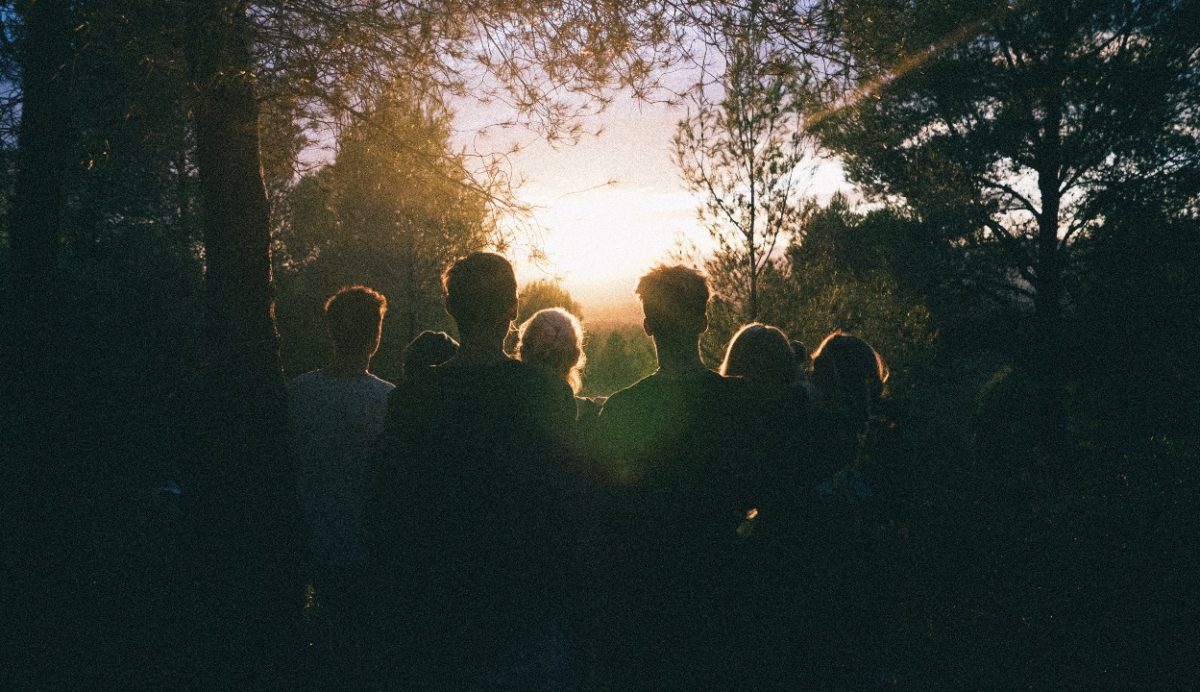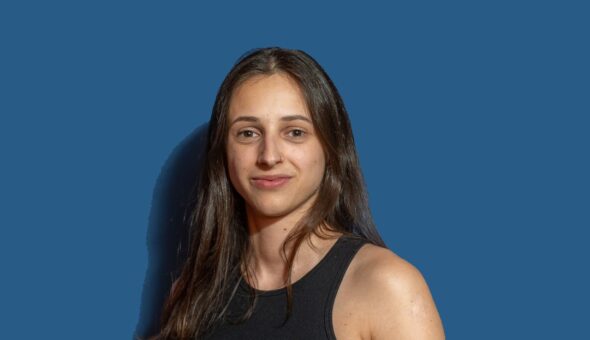This May, the Business and Society blog will focus on students. After a difficult year, when students have had to show extraordinary resilience, they've proven themselves to be diligent and dedicated to their learning. So this month we'll hear from them and shine a spotlight on their work, their experiences and their ambitions.
Here Isabella Barletta, a Master's student at the University of Bath, speaks to her colleagues on the MSc Sustainability and Management course, exploring their motivations and ambitions and reflecting on their collective sustainability journey.
Studying for a master’s degree is a demanding pursuit. Studying for a master’s degree from a behind a computer screen in the midst of a pandemic is even tougher. Motivation is important but – from my experience as a current MSc student – a sense of belonging is key. And belonging to a group of deeply driven and purposeful students, like those in the current MSc Sustainability and Management cohort, is nothing less than the icing on the cake.
Despite COVID-19 keeping my colleagues and I apart, we have taken advantage of every Zoom breakout room, Teams group, or WhatsApp chat to connect and learn from each other. We all appreciate that the value of our programme lies in its interdisciplinary nature and we quickly recognised that as much of our learning about sustainability has come from our informal conversations, from drawing from our rich and varied backgrounds, as it has from our formal learning opportunities.
I set out to interview some of my colleagues to capture the essence of this tacit learning. Focussing on their backgrounds, current experiences, and future aspirations, I share here a little of our collective sustainability journey, drawing from conversations with Ian Serra, Madhav Yadav, Jill Kramer, Maryam Abdul Hafeez, Sam Wimpress, Theo Barker and Isaure Denis.
“So, what is your background?”
I first asked this fairly basic question to my colleagues during their initial days in Bath, and I wish I had taken notes to remember all of their answers. Our cohort represents such a rich tapestry of experiences in, and motivations for, learning about sustainability and I remember being completely blown away by the student’s backgrounds. We have geographers, designers, statisticians, political scientists, language experts, marketers, communicators, and business students in our midst; some fresh from academic study, others bringing practical and tangible work experience. What unifies us is an interest in bringing together ideas, concepts, and expertise from across diverse fields, or disciplines, to solve complex problems of sustainability in an interdisciplinary way. As one of our geographers, Theo, put it: “If everyone came at sustainability from the same angle, it would not foster innovative discussion around the subject. The field thrives off diversity of thought.”
Ian, a Political Sciences graduate, identified a direct connection between his first degree and the MSc Sustainability and Management in the intersection of ethics and economics. He argued: “Given the current state of the world, the political environment has to be totally multidisciplinary and should address difficult issues drawing on a range of areas of expertise.”
All of us are taking a huge amount of value from our interactions with one another. Jill, an International Business graduate with industry experience, reflected: “I have a business background, so the concepts and some theories introduced are not new to me; however, the interpretations and approaches of my colleagues are really enriching my experience and making me question my own understanding and application of the content.”
Maryam, a Visual Communications and Motion Design graduate, has a very different story and a unique background. She experienced a professional tipping point towards studying for sustainability when she participated in the Model United Nations conference as a delegate of India. This experience encouraged her to reflect on the lack of consideration for sustainability in her field and take charge of making the connection. “I believe that visual communication as a channel, if used properly, can be a useful tool to impart sustainable behavioural changes in people”, she shared.
For others, the motivation to study on the MSc was profoundly personal and so strong that inspired a life change. Madhav, coming from an academic background in statistics and time in industry as a Senior Actuarial Analyst, is one of them: “I spent almost 5 years of my life in one of the most polluted cities in the world, New Delhi. Time and again I wondered why somebody didn’t do something about the environmental issues surrounding us, until the day I realised I was asking the wrong question and felt helpless. I realised I wanted to make my living in a way that affected meaningful environmental change. So, a Masters in Sustainability and Management seemed like an obvious choice.”
“What are your plans after the MSc?”
I continue to take notes of our reflections to this question. So far - throughout the conversation I had with Theo, Ian, Maryam, Jill, Isaure, Sam, and Madhav - I can tell we are all already thinking about life post-MSc. Our career paths will undoubtedly vary; there is talk of consulting, of becoming a force for change in private and public sector organisations, and of further academic study. As well as contextual knowledge, the MSc is exposing us to the kinds of skills we will need to forge careers in sustainability, whatever the path we choose.
It’s great to hear the aspirations and how my peers plan to use the skills and knowledge acquired through the MSc to influence business from within. Sam, who joined the MSc from a BA in Economics and Geography, for instance, talks about how he wishes to lead a “radical and sustainable change” in human behaviour within a company that “acts as an example to others to help meet the net zero target required by 2050”.
Maryam, interested in the power of visuals to inspire and motivate on the topic of sustainability, is committed to being a “persuasive force for change.” There are real change-makers amongst us, and I look forward to seeing how this passion is channelled once we move into the world of work.
Some, such as Isaure who comes from an academic background in business and marketing, already know where they see themselves: “Implementing sustainability within organisations cannot be achieved when designed as a silo, as a separate operational department. So, I think it’s essential to teach business in a way that centres sustainability within all of its processes…I believe sustainable marketing will thrive in the next decades, responding to the critical need cause by the climate crisis, and I look forward to contributing to the field.”
For others, the MSc is, in itself, a reflective process to discover that ultimate career goal. Theo told me: “I want to work with and for people. I want to work in an environment which is built around a team ethos, where ideas can be shared and built on. Secondly, I want my role to have a positive impact on society. What this specifically means at the moment, I don’t know yet… But I want a role that will improve the way people live their lives. Through my masters I aim to discover what kind of an impact I want to have.”
Overall, we realise that while our MSc will draw to an end this summer, and as our experiences become rich memories, the relationships that we have forged are enduring. Learning is a process rather than an end goal, and as Madhav commented: “the more I learn, the more I find I have to learn! I believe [that this MSc] has widened my horizon and scope of thinking to an unprecedented level.”
Final Thoughts
I find it difficult to add to what my peers have already shared as their stories and hopes speak closely to me. I see myself in Madhav’s courage to leave a secure job position to enrich his life and career with a deeper purpose. I also share both Maryam’s and Isaure’s experience coming myself from a background in Communications and Marketing. And Theo’s wishes for his future strongly resonate with mine.
A professor once told me that, at times, I would get carried away with many different ideas and needed to learn how to settle on one. Today, I believe I have found the exact programme and field where I don’t need to pick one of my interests. The true magic here is bringing it all together, and I am thankful I get to do it with a brilliant cohort and first-class academics. I dream, one day, of becoming one of them and inspiring students as much as they have inspired and challenged us during this year.
On a last note, my colleagues already promised me updates on their future endeavours and achievements, so our conversations will continue. Watch this space.
Respond



